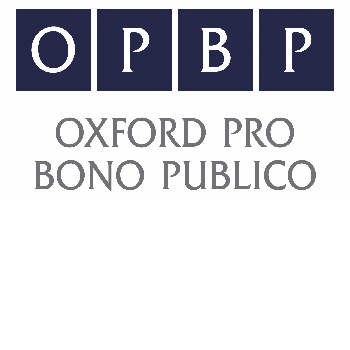OPBP Project Work – Frequently Asked Questions
OPBP Project Work - Frequently Asked Questions
Who are OPBP projects for?
Each of OPBP’s projects begins life as a proposal, which sets out the context of the work and the specific questions OPBP is being asked to answer. We welcome proposals from any individuals or organisations working pro bono in the public interest: past project partners have included United Nations bodies, non-government organisations, lawyers and law firms.
OPBP does not provide legal advice, represent clients, or litigate in courts or tribunals.
What issues does OPBP work on?
OPBP’s major strengths are in comparative and international law. Within these areas we work on an enormous range of public-interest issues, from human rights and non-discrimination to freedom of information, access to justice and regulatory reform. To see the full spectrum of issues OPBP has worked on, you can browse or search our past projects here.
What form do projects take?
OPBP projects usually take the form of an in-depth research report that responds to the questions identified in the project proposal. Our reports can be used in the preparation of research briefs, expert opinions, amicus curiae briefs, policy submissions, or reports. Again, you can browse our past projects here.
How long does a project take?
A timeframe for each project is worked out in consultation with our project partner. This usually ranges from one to six months, depending on the needs of the project partner, the range of issues or material to be covered, and the availability of volunteers, student co-ordinators, and Faculty supervisors.
Who works on OPBP projects?
Each project is managed by one or more student co-ordinators selected for their familiarity with relevant issues or jurisdictions. The co-ordinators then recruit a team of research volunteers drawn from Oxford’s graduate student body. Each project is also overseen by one or more supervisors from the Faculty of Law with expertise in the relevant area(s), and is subject to a rigorous multi-level approval process to ensure that the final report is of the highest quality.

